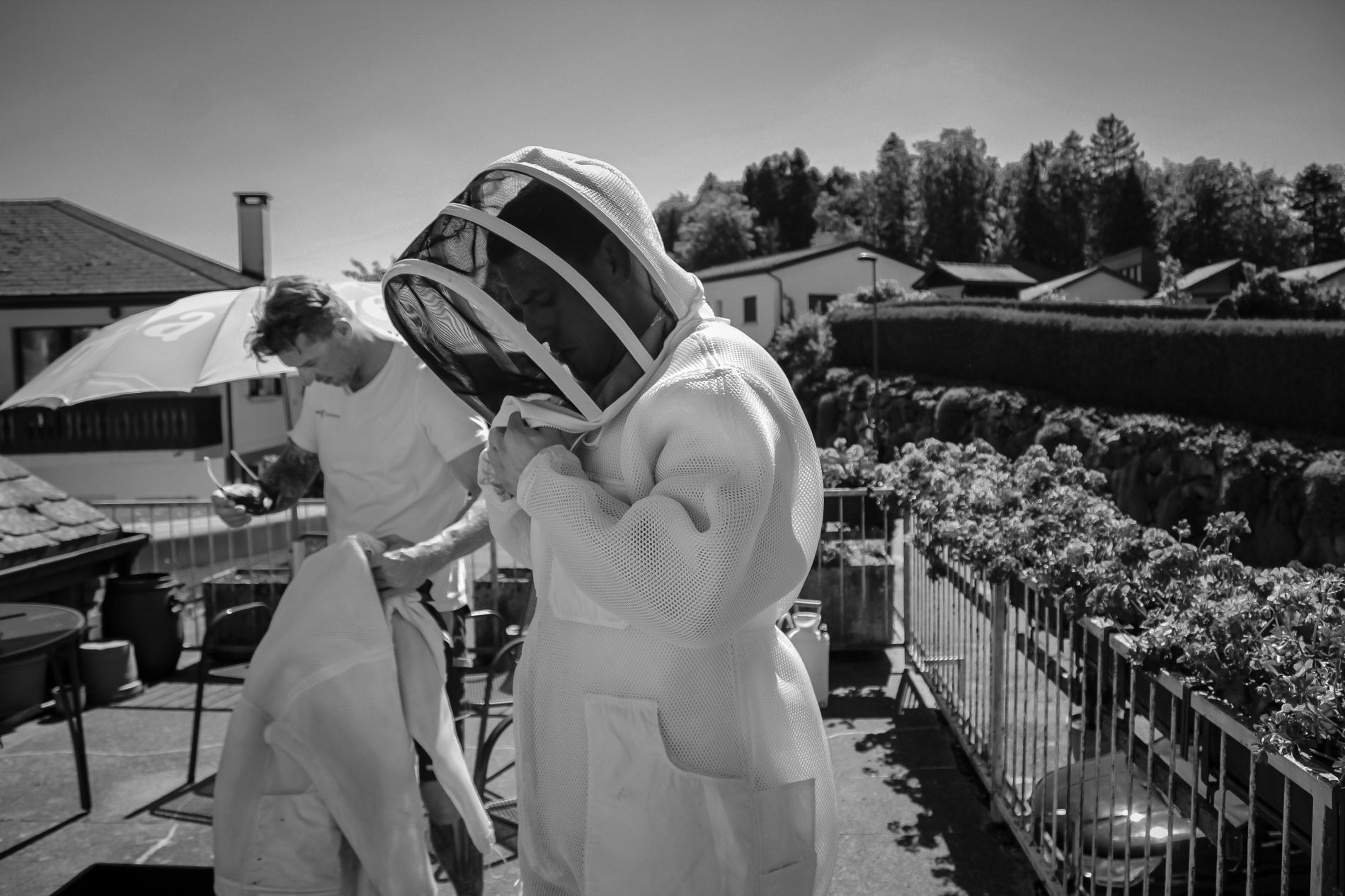
Fighting Asian hornets in Fontenais
Have you discovered an Asian hornet's nest? We'll be on site quickly! Call now - Daily Mon-Sun 07:00-21:30. Contact us now: 058 510 22 54
Having the Asian hornet's nest removed
The hornet species Vespa velutina, originally from South-East Asia, has aggressively expanded its presence to Switzerland and the surrounding subcontinent. While not posing a threat to humans, this species is known for preying on honey bees, causing concern among beekeepers. Even a small number of these hornets can rapidly attack and wipe out an entire bee colony in a brief timeframe. If you have discovered a hornet's nest on your house, patio, shed, or in your blind box, contact our experts for hornet nest removal in Fontenais!
Use the uncomplicated telephone service of the Hornet experts in Fontenais and simply inform us at 058 510 22 54, we will be on site quickly so that you and everyone in your area feel completely safe again.
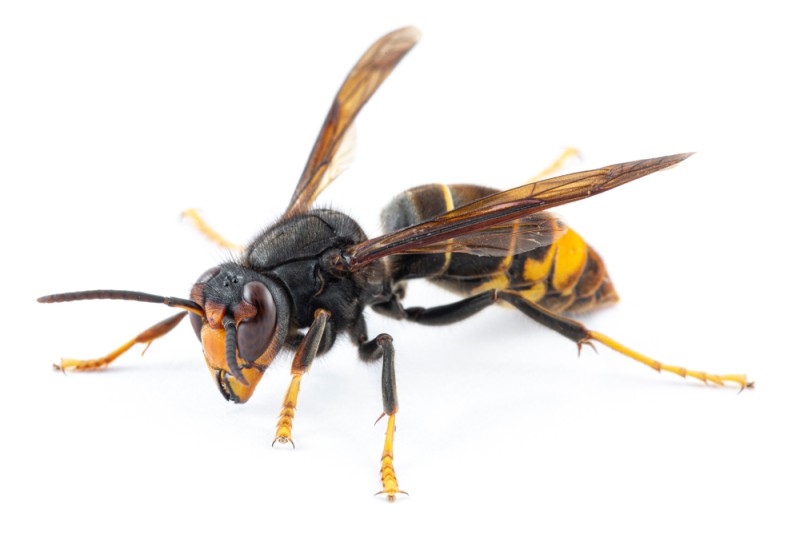

Appearance of the Asian hornet
Here are some characteristics that distinguish the Asian hornet:
1. Size: The queen can reach a length of about 3 cm, while the workers are slightly smaller and measure about 2.5 cm.
2. Color: The Asian hornet has a dark body that is almost black, with a yellow stripe at the back of the abdomen. Its face is orange-yellow.
3. Wings: The wings are dark and almost smoky gray.
4. Legs: The hornet has yellow tips on its legs, which is a striking distinguishing feature when it flies.
5. Nest: The Asian hornet's nest is often high in the trees, but it can also be found underground or in tall structures such as chimneys. It has an oval shape and is made of chewed wood, which gives the hornet a papery texture.
It is important to distinguish the Asian hornet from the European hornet (Vespa crabro), which is more harmless and a natural part of the European fauna. If you suspect you have found an Asian hornet nest near you in Fontenais, you should report this to the local authorities, or using our reporting form, as they can spread quickly and be harmful to bees and other insects. To avoid being attacked by the flying inhabitants, you should hire a professional pest controller such as the Hornet Experts Fontenais. We can identify the nest beyond doubt and take further steps to remove the Asian hornets professionally.
News about the Asian hornet in Fontenais
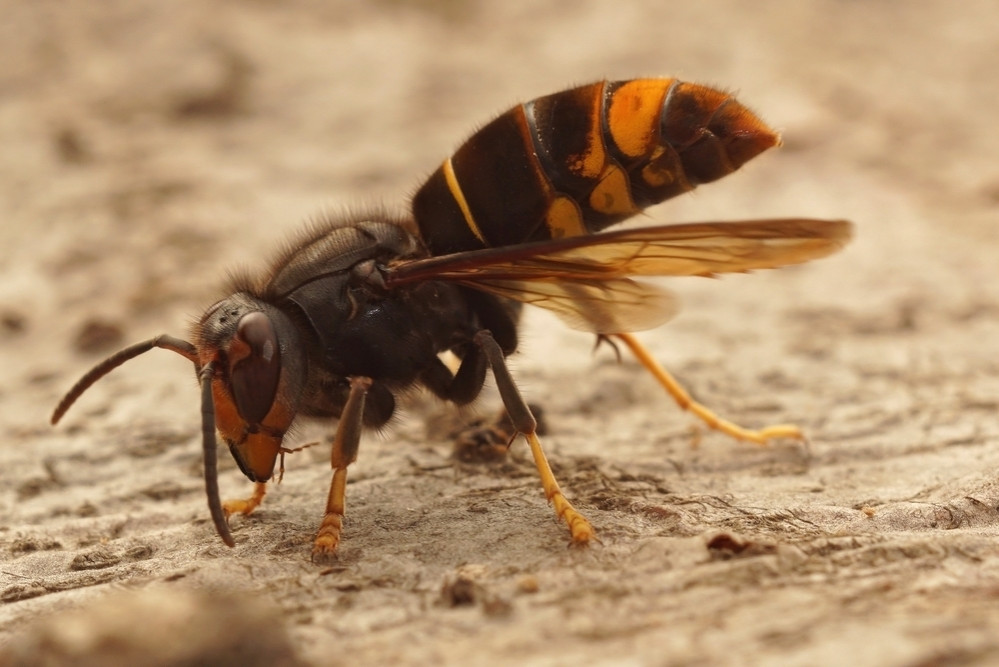
02.12.2025 Western Switzerland: Killer hornet eats bees
The territory of the Asian killer hornet has expanded considerably this year, with a notable increase reported in western Switzerland. This invasive species poses a significant threat to native bee populations, as bees make up the majority of its diet. The potential consequences are serious. Moreover, the hornet represents a danger to individuals with allergies to its venom.
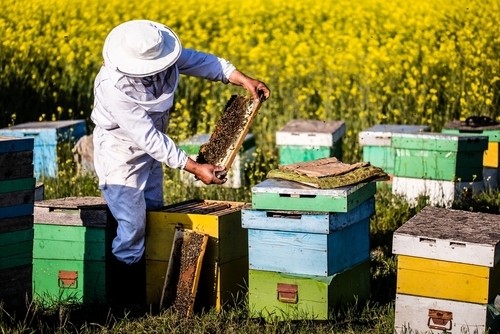
25.11.2025 Serious concerns about the bee population!
Asian hornets are inflicting significant harm on beehives across multiple parts of Europe, as reported by local beekeepers. Even a small number of hornets can destroy an entire bee colony within hours. This sharp decline in pollinators could have serious consequences for pollination, local ecosystems, and agricultural productivity.
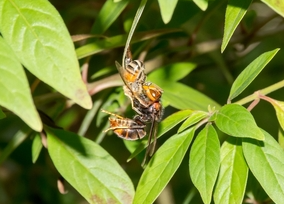
18.11.2025 Asian hornet doesn't just eat bees!
The danger it presents to insects is substantial!
The Asian hornet feeds largely on honeybees—up to 85 percent of its diet—alongside beetles and flies. This high level of predation not only poses difficulties for fruit growers but also further threatens already vulnerable bee populations.
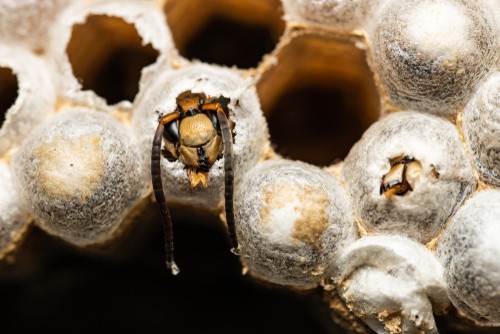
11.11.2025 How did the Asian hornet get to Europe?
The Asian hornet likely arrived in Europe unintentionally and has quickly expanded throughout France and nearby countries. Its adaptability to different environments and the absence of natural predators have contributed to its rapid spread. A single nest can generate several hundred new queens in one breeding season.
Asian Hornet Reporting Form
Please fill out all required fields and submit the form.
Help us!
If you discover an Asian hornet or a nest of this invasive species in Fontenais, it is of the utmost importance that you report it immediately. The Asian hornet is not only dangerous to humans, but also poses a serious threat to native bee populations and the ecological balance in Switzerland.
Why is it important to report the find?
In regions where the Asian hornet becomes established, its effect on native insects, especially honey bees, is noticeable. By preying on bees, these hornets cause a decrease in pollinator populations, ultimately affecting the local flora and agricultural production. By reporting sightings, experts can react quickly, remove the hornets or their nests and thus prevent the spread of this invasive species.
Notification form for sightings
By working together to regulate the overpopulation of the Asian hornet in Switzerland, we can protect our native insect populations. We kindly request that you report any suspicions or sightings using our exclusive reporting form, as your involvement is crucial in enabling us to intervene early and mitigate the spread of this dangerous species in our ecosystems.
Your contribution is crucial in the fight against the Asian hornet in Fontenais. Together we can protect nature and maintain the balance of our ecosystems;
Thank you for your vigilant attention and your commitment to protecting our environment.
How dangerous is the Asian hornet?
The Asian hornet (Vespa velutina) is a predatory insect that originated in Asia and has spread in recent years to various parts of Europe, including France and now also Switzerland and in Fontenais. Although it poses a threat to honey bees and native biodiversity, it is generally no more dangerous to humans than other wasp species. Nevertheless, there are some aspects to be aware of:
1. Threat to honey bees: The Asian hornet preys on honey bees, threatening native bee populations. A decline in bees can have a negative impact on pollination and thus on local flora and agricultural production.
2. Stings: As with other wasp and hornet species, the stings of the Asian hornet can also be painful. For most people, the stings are unpleasant but not dangerous. However, people who are allergic to wasp or hornet stings can suffer a severe allergic reaction, which in the worst case can lead to anaphylactic shock.
3. Aggressiveness: Although the Asian hornet is not necessarily more aggressive towards humans than other wasp species, it can become aggressive if it feels threatened, especially near its nest.
4. Ecological effects: Apart from the direct effects on honey bees, the spread of the Asian hornet can also disturb the ecological balance by affecting the populations of other insects.
It is essential to bear in mind that the Asian hornet and the Asian giant hornet (*Vespa mandarinia*) are separate species, and it is important not to confuse them. The Asian giant hornet, known as the "killer hornet", has a larger size and can potentially be more hazardous to humans due to its stronger venom and the size of its sting.
If you have discovered a nest, call us immediately: 058 510 22 54
Our hornet professionals in Fontenais are certified by the VSS.
Frequently Asked Questions About Asian Hornets in Fontenais
Known for its highly dangerous stings, the Asian hornet is an extremely perilous insect. Its threat level generally exceeds that of most other hornet species.
With its significant dimensions, the Asian hornet can exceed lengths of up to 3 cm. Its sleek, dark body displays a captivating ensemble of dense orange, yellow, and black stripes.
Typically, the Asian hornet demonstrates a calm and non-aggressive demeanor. Yet, when faced with threats and limitations, it reacts swiftly, displaying heightened activity and a defensive aggression in response.
The Asian hornet's poison poses a significant danger to humans. Being bitten by this insect can be exceptionally painful and has the potential to cause allergic reactions.
Caution must be exercised around the Asian hornet due to its venomous stinger. Its sting is more painful than that of other wasps and has the potential to cause allergic reactions.
In order to inform and report an Asian hornet sighting, it is imperative to contact a regional wild bee protection officer or the designated department within the Ministry of Agriculture.
Preventing attacks and limiting the spread of Asian hornets relies on timely reporting. With their highly territorial and aggressive instincts, reporting is essential.
To effectively address the issue of Asian hornets in Switzerland, professional hornet control becomes necessary. Consulting a reputable pest control service provider is recommended.
Although the Asian hornet is not officially protected, it is imperative to maintain constant monitoring, limiting their potential for further dissemination.
Before entering the dormant phase, the Asian hornet selects various sites for hibernation, such as wall corners, buildings, garden sheds, temporary houses, or tree hollows, either alone or in groups.
Would you like more information about Asian hornets? Then take a look at our FAQ's about Asian hornets.
Private inquiry form
For an uncomplicated request to remove an Asian hornet's nest, please use our contact form for private individuals.
Real estate inquiry form
Use our property management order form to request the removal of an Asian hornet's nest.




_12.jpeg)
_11.jpeg)
_10.jpeg)
_9.jpeg)